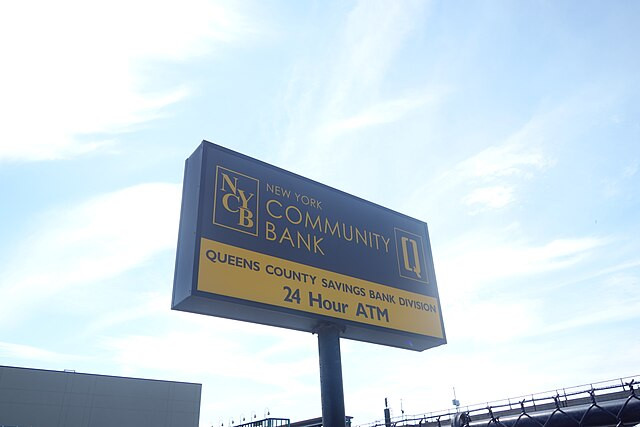New York Community Bank (NYCB) shares plunged more than 40% on Wednesday afternoon following reports that the troubled regional lender is actively seeking a significant cash infusion to shore up its finances. The Wall Street Journal, citing people familiar with the matter, revealed that bankers are currently gauging investors' interest in purchasing stock in the company, raising concerns about the bank's stability and the possibility of a depositor exodus.
The steep decline in NYCB's stock price, which prompted a trading halt pending imminent news, underscores the growing uncertainty surrounding the Long Island-based bank's financial health. The bank has been grappling with a series of setbacks, including a surprise loss in the previous quarter, largely attributed to soured commercial real estate loans, and the recent disclosure of "material weaknesses" in its internal controls.
In a filing last week, NYCB admitted that these weaknesses, related to "ineffective oversight, risk assessment and monitoring activities," resulted in a staggering $2.4 billion loss to shareholders in the last quarter. The bank has since delayed the release of its required annual financial disclosure, known as a 10-K, to focus on addressing the identified issues, drawing unsettling parallels to the now-defunct First Republic Bank, which postponed its quarterly earnings report shortly before its collapse last year.
The quest for emergency funding has fueled speculation that NYCB may be experiencing a significant withdrawal of deposits, a scenario that could further jeopardize the bank's future. Keith Horowitz, an analyst at Citigroup, expressed doubts about the likelihood of a sale as a solution for NYCB, stating in a recent note, "In our view, NYCB is on its own to figure out how to course correct."
Several Wall Street analysts have previously raised concerns about NYCB's exposure to the beleaguered commercial real estate (CRE) sector, suggesting that the bank may need to build additional capital reserves to absorb potential losses on loans. In a note earlier this month, brokerage firm Wedbush warned, "We believe this review of internal controls could lead to additional CRE-related reserve building, particularly related to the company's NYC rent-regulated multifamily exposure."
The bank's troubles have been compounded by the recent replacement of its CEO and the revision of its quarterly loss to $2.7 billion, citing a $2.4 billion goodwill impairment. As NYCB's stock price hovers near an all-time low, down more than 80% year-to-date, investors and industry observers are closely monitoring the situation for signs of further deterioration.
The urgent need for a cash infusion has drawn comparisons to the ill-fated First Republic Bank, which similarly sought emergency funding in the weeks leading up to its collapse. As NYCB navigates this perilous landscape, the banking industry and the wider financial community are watching with bated breath, hoping to avoid another casualty in the increasingly volatile regional banking sector.
With NYCB's annual financial disclosure expected by March 15, barring any additional updates, stakeholders will be scrutinizing the report for indications of depositor withdrawals and the bank's overall financial health. As the embattled lender races against time to secure much-needed capital and restore investor confidence, the coming days and weeks will be critical in determining whether NYCB can weather this storm or succumb to the mounting pressures that have already claimed several of its peers.






